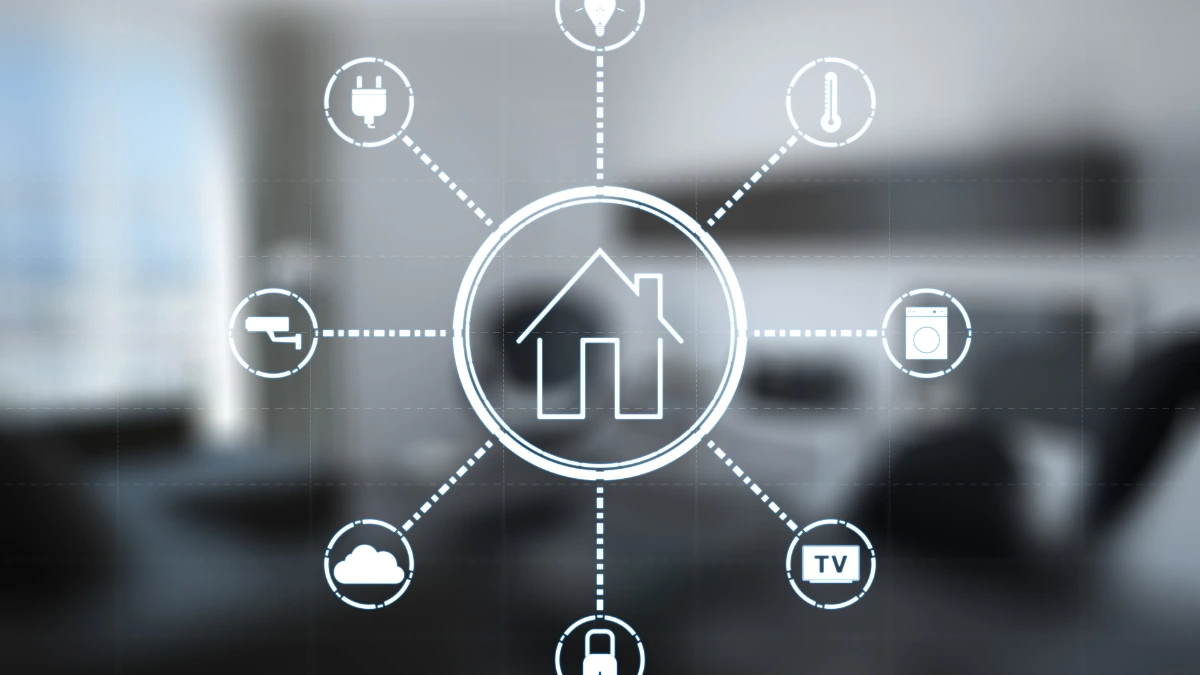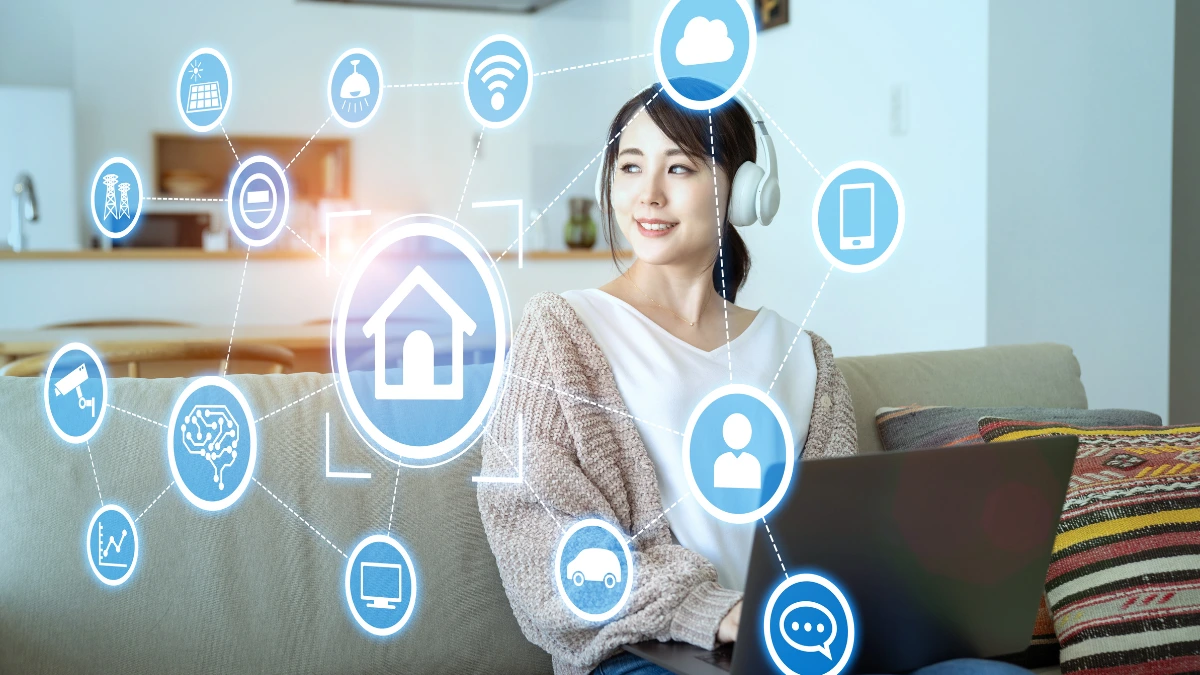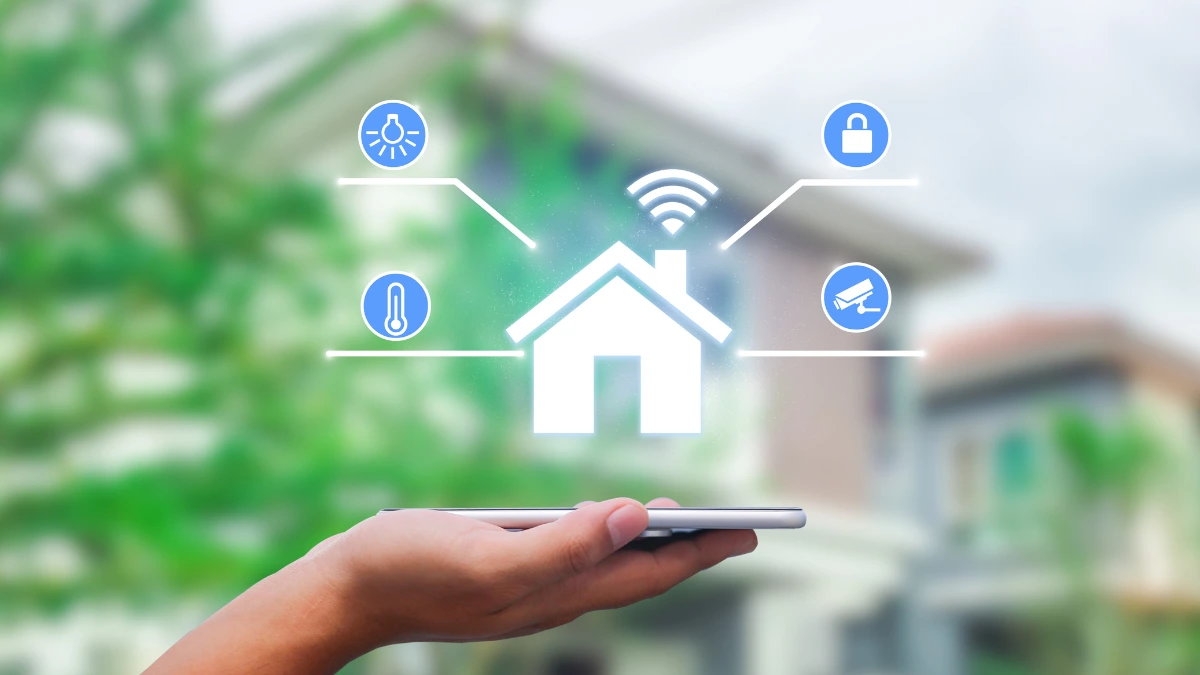With today’s technological advancements, many people want a futuristic home. A smart home system is one way to realize that dream.
A smart home allows you as a user to perform remote control with devices that are integrated, making it easier to use the device as a whole.
Do you want to realize your dream of having a futuristic home? This article might be able to help you in providing information related to smart homes, from the definition, how it works, benefits, and regulations of its use in Indonesia.
What is a Smart Home?

A smart home is a futuristic residence that utilizes automation technology supported by smart home appliances. Residents are able to control and monitor electronic devices integrated through the internet network with applications on smartphones or tablets.
The integration of smart homes is inseparable from the involvement of the Internet of Things (IoT) concept and smart sensors. Smart homes can create a convenient and efficient experience in remotely controlling lighting, temperature, security systems, and other devices through smartphones.
How Does it Work?
Smart home works with a system that is connected to an application that can be accessed via a smartphone or tablet as the main device with smart home appliances such as smart door locks, smart CCTV, smart lighting, and so on.
Smart devices that are connected to the application on the main device can be controlled or programmed according to the user’s needs. Smart devices can also learn user usage patterns with self-learning capabilities, so they can adjust to user habits.
Smart devices are also equipped with an IoT system that allows devices that have been connected to the system to share information and support their use.
The Benefits

Using a smart device will provide many benefits, especially for supporting large-scale automation systems in your home. Here are some of the main benefits:
1. Remote control
A smart home system allows you, as a user, to monitor home conditions in real time from a distance.
You can also control the device, such as turning it on/off and adjusting the features on the device, wherever you are.
2. Connectivity between devices
A quite beneficial smart home capability is its ability to connect devices. This ability allows smart devices to work together to maximize their use.
3. Ease of setup
A smart home system that is connected by an application to a smartphone or tablet as the main device makes setting up all connected devices easier.
The settings on the app are also generally easy, so there is no need to struggle to control all smart devices from the palm of your hand.
4. Improve security
With a smart home system, you can monitor your home conditions in real time through the app, even when you are not at home.
You can take appropriate action through the remote control if there are notifications or suspicious activities at home.
5. Power saving
Smart home systems are designed to support power-saving efficiency. Smart devices are usually equipped with automatic settings when not in use.
Some devices can even provide notifications if there is excessive power usage, so you can anticipate the next usage.
Regulation in Indonesia

The smart device uses technologies such as Bluetooth, Zigbee, or WiFi that operate within a specific frequency spectrum. In Indonesia, any Bluetooth, Zigbee, or WiFi-based wireless device is required to have a DJID (Directorate General of Digital Infrastructure) under the Ministry of Communication and Digital (KOMDIGI).
Smart home regulation is based on KEPMEN No. 260 Tahun 2024 for Bluetooth and Zigbee, and KEPMEN No. 12 Tahun 2025 for WiFi, which requires all radio frequency-based devices to meet specific technical standards before being sold in the country.
The DJID certification ensures that the product meets government safety and quality regulations and does not interfere with other communication devices. The certification process involves technical testing, such as frequency adjustments, safety checks, and compatibility with the surrounding environment.
Once the tests are completed, products that pass are listed in a Test Result Report, which confirms that the product is safe and ready for sale in Indonesia. This report reassures customers that the product meets technical standards and is secure.
For companies wanting to sell a smart home appliances in Indonesia, Type Approval Certification Services for ICT Products are available to assist with this process. This service includes preparing technical and legal documents, conducting required testing, ensuring compliance with regulations, helping companies streamline the certification process, and giving consumers confidence in certified products. [UN].

